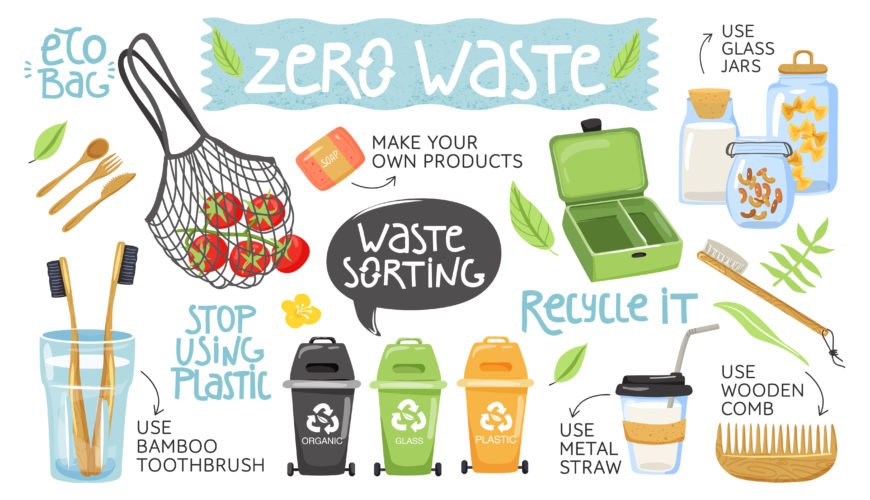The development of mass production of consumer goods and the era of plastics—while signaling an unprecedented boom in terms of manufacturing, advancement in almost all sectors of society, and wealth—also brought with it the problem of garbage and its disposal. The garbage problem that is the direct result of out-of-control consumerism, coupled with the explosive growth of the human population, needs a drastic solution.
Landfills and other old-fashioned solutions are no longer sustainable. If the Earth is to escape being drowned in its own trash, a solution must be found. This year, emerging trends and technologies for rubbish disposal give hope to many that this disaster is finally getting much-needed attention.
Trends In Garbage Disposal For 2021
The 2020 pandemic further exacerbated the already uncontrollable problem of waste disposal, with the increased use of disposable materials, consumer goods, medication disposal, and others. This year, experts expect changes in the waste industry’s focus, and technology will be at the forefront. Below are some of the changes in rubbish disposal that are expected to happen this year:
Innovative Plastic Recycling Process
Scientists have developed an advanced method of removing contaminants, color, and odor from polypropylene plastics. This method turns recycled polypropylene plastic into a clean, high-quality resin that can be made into another plastic product, essentially extending a plastic’s use indefinitely.
This is significant because only 1% of polypropylene plastics are recycled, even though it’s the second most commonly used plastic worldwide. Moreover, this recycling system uses less energy compared to making virgin polypropylene.
Sustainable Packaging

Packaging products end up in trash bins, where they comprise the majority of solid wastes that rubbish removal companies haul, such as this one. However, the trend now among companies in terms of packaging is sustainability. The sustainability efforts started by businesses had to take a backseat during the pandemic when to-go packaging demands ballooned with the sudden increase of delivery and takeout. The pandemic also required a higher sanitation and safety standard for the packaging.
This year, the industry is coming up with packaging that is recyclable and biodegradable, or made from compostable materials. Moreover, many consumers prefer these types of packaging; in response, the industry is rolling out new materials, designs, and other innovations. Fewer packaging in the trash bins will mean fewer trips for the garbage trucks.
Implementation And Legislation To Advance ‘Zero Waste’
As more and more people recognize the importance of zero waste management, many cities are implementing new recycling methods and pushing for certain products to be banned. The movement to produce zero waste is making inroads into the reduction of wastes produced by businesses, including individuals. Zero waste is a set of principles whose ultimate goal is for no garbage to end up in the ocean, or to be sent to incinerators and landfills.
There are also cities and regions worldwide that signed up to push for zero waste. This movement not only advocates for the reduction of waste materials, but its adherents also push for making policies and declarations that support this principle. Zero waste proponents strive to get more businesses and people to become aware of the waste problem.
This awareness will drive cities to provide necessary regulations for better waste processing and collection. Likewise, new waste programs could also result from the moment government regulations are rolled out in support of zero waste.
Computer Technology In Aid Of Waste Management
Waste management will involve computers to help sort waste from recycled materials. Robots at recycling facilities for waste-sorting, compactors equipped with GPS, recycle bins with chips installed that can keep track which households are practicing recycling, and other methods are just some of the technologies that are proving to be invaluable to the waste industry.
Researchers are also on track to develop new tech in locating atypical recyclables like wasted food. Furthermore, to meet energy and sustainability goals, data collection will play a large part in recycling and waste solutions. This could mean that the lifecycle of disposable products will be tracked.
Conclusion
The events of 2020 have created an increase in trash as a result of lockdowns. However, companies, such as Zero Waste Group, that relegated their sustainability efforts to the back burner are ready to commit. New technologies, innovative ways of recycling, sustainable packaging, and government support will have a great impact on garbage disposal for 2021.




